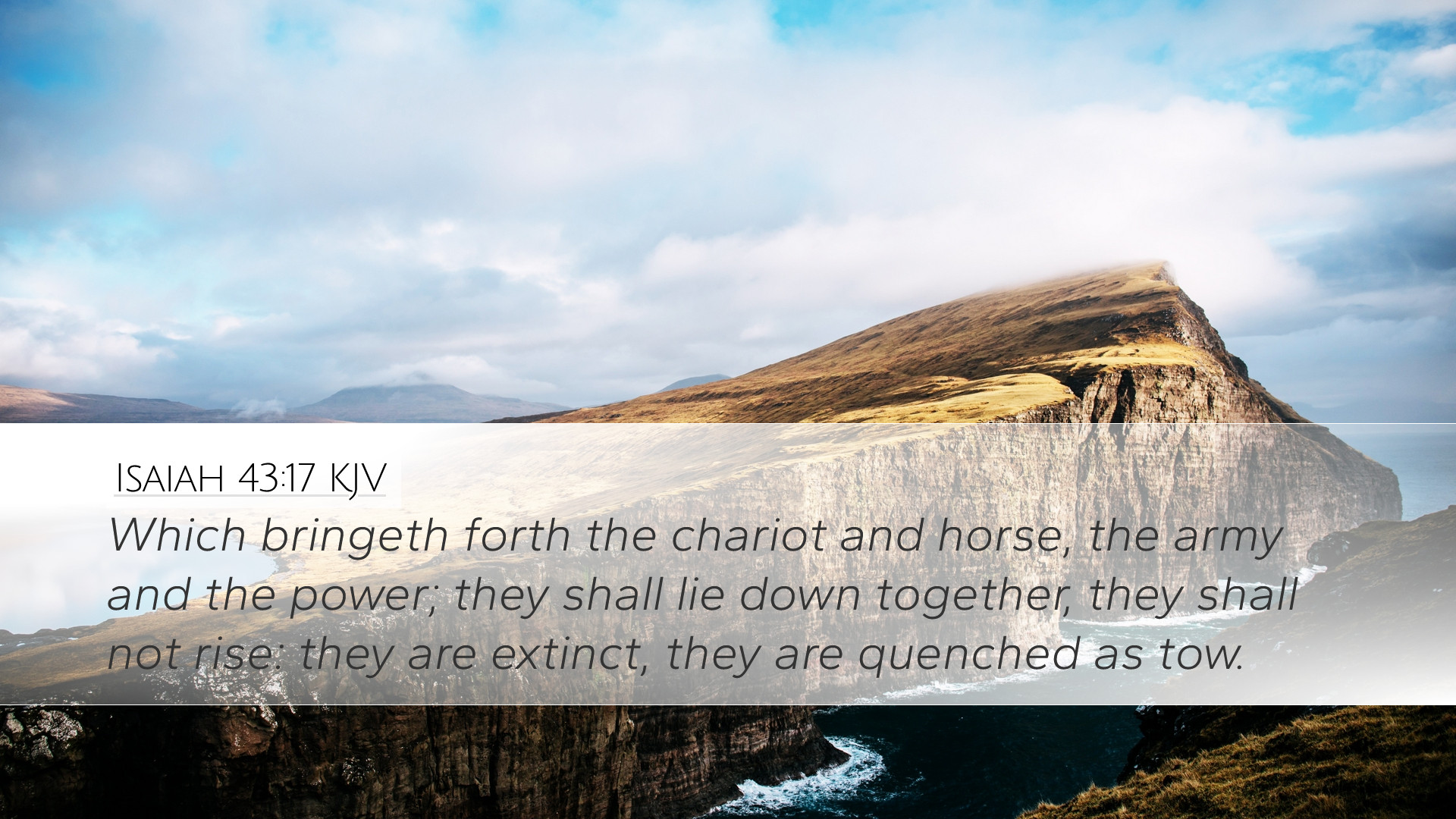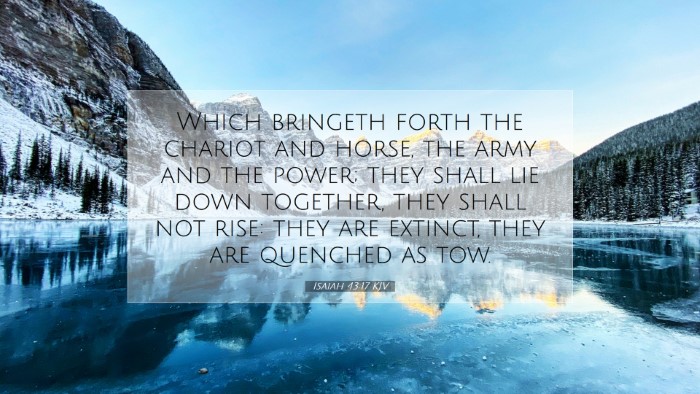Commentary on Isaiah 43:17
Introduction
Isaiah 43:17 states: "Which bringeth forth the chariot and horse, the army and the power; they shall lie down together, they shall not rise: they are extinct, they are quenched as tow." This verse underlines God's sovereignty and power over all creation, particularly demonstrating His ability to deliver His people and vanquish their enemies. The commentary combines insights from Matthew Henry, Albert Barnes, and Adam Clarke to provide a rich understanding of this scripture.
Contextual Background
The Book of Isaiah addresses the spiritual condition of Israel and offers both warning and comfort to its people. This chapter reflects a transition from judgment to hope, indicating a promise of restoration. The significance of Isaiah 43:17 speaks to the assurance of God’s intervention in the face of adversity.
The Nature of God's Salvation
Divine Intervention: Both Henry and Barnes emphasize that God is actively involved in delivering His people. Henry notes that God not only leads His nation out of trouble but also obliterates the threat posed by their adversaries. The imagery of the “chariot and horse” signifies military strength, pointing to the might of God to dissolve even the most formidable forces.
Assurance of Victory: Adam Clarke further illustrates that the “army and power” mentioned are symbolic of any forces that oppose God's people. Their ultimate fate is spelled out: “they shall lie down together.” This imagery indicates a thorough defeat—no rise again for those that oppose the Lord. Clarke points out that these terminologies reflect not just physical battles, but also the spiritual victories that God promises His followers.
Theological Implications
God’s Sovereignty: The verse showcases God’s absolute power over nations and circumstances, an essential aspect of Biblical theology. Both Henry and Barnes agree that the defeat of enemies is assured for those who put their trust in God. This a key reassurance for pastors and leaders who guide their communities through challenges.
The Nature of Divine Judgment: Clarke delves into the idea of divine justice, elaborating that the enemies of God’s people receive their due judgment. The phrase “they are quenched as tow” resonates as a metaphor for total extinguishment. This brings forth important discussions regarding God's judgment juxtaposed with His mercy.
Rhetorical Devices and Imagery
Isaiah employs powerful imagery throughout these verses. The militaristic language speaks volumes in the context of ancient warfare, symbolizing not only historical events but also spiritual truths. The detailed descriptions highlight the finality of God's intervention, which resonates with both contemporaneous and modern readers.
- Chariot and Horse: Representative of speed and power, indicating the strength of adversaries.
- Army and Power: Indicates a collective threat, emphasizing the overwhelming nature of opposition faced.
- Extinction Imagery: Highlights the absolute destruction of what opposes God’s will.
Practical Application
For pastors and Bible scholars, this verse offers profound implications for spiritual warfare and faith assurance. Henry advises believers to cling to the promises of God, particularly in times of crisis. By recalling instances of divine deliverance, congregations can be encouraged to trust God's plan.
Barnes suggests that the assurance present in this verse can be a source of strength during trials. This entails not just an understanding of God’s power, but also a call to recognize our position as His chosen people, destined for victory over spiritual adversities.
Conclusion
Isaiah 43:17 serves as a powerful reminder of God's sovereignty and the assurance of his protective intervention. The collective insights from Matthew Henry, Albert Barnes, and Adam Clarke illuminate the theological depth and practical relevance of this scripture. For church leaders and learners alike, the verse encourages reflection on God’s promises amid trials, offering hope for positive outcomes as they invoke God’s power against their challenges.


